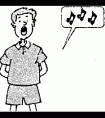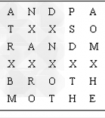Read and write.(根据首字母及汉语提示.完成单词,补全下列句子。)1.The Great Wall is f__________________(著名的)in China.2..They w__________________(是)young, t-四年级英语
twenty thirty forty fifty sixty seventy eighty ninety first second third fourth fifth eighth ninth twelfth twentieth
形容词
big small long tall short young old strong thin active quiet nice kind strict smart funny tasty sweet salty sour fresh favourite
clean tired excited angry happy bored sad fine great heavy new fat happy right little lovely beautiful colourful pretty cheap expensive sick better
介词
in on under near behind next to over in front to from to for
代词
I me my we us our you your he him his she her it its they them their
动词
Play swim skate fly jump walk run climb fight swing eat like have turn buy take live teach go study learn sing dance row do homework watch TV read books cook the meals water the flowers sweep the floor clean the bedroom make the bed set the table wash the clothes do the dishes use a computer do morning exercises eat breakfast eat dinner go to school have English class play sports get up climb mountains go shopping play the piano visit grandparents go hiking fly kites make a snowman plant trees draw pictures cook dinner read a book answer the phone listen to music clean the room write a letter write an e-mail drink water take pictures watch insects pick up leaves do an experiment catch butterflies count insects collect insect collect leaves write a report play chess have a picnic get to ride a bike play the violin make kites collect stamps meet welcome thank work look help pass show use clean open close stop wait drive send feel become think wear put on go home go to bed play computer games do housework empty the trash put away the clothes get off(on) take a trip go on a trip read a magazine go to the cinema
疑问词
what(什么) what colour(什么颜色) what time(几点)
what day(星期几) how(怎样)how old(年龄多大,几岁)
how many(多少) how much (多少钱) how tall (多高)
how heavy(多重) how long(多长) how big(多大) how large(面积多大) who(谁) when(什么时候)
whose (谁的) where(在哪里) why(为什么)
which(哪一个)
be动词
am is are was were
助动词:do does did
情态动词
can should would will
考点名称:不规则形容词的比较级
- 不规则形容词的比较级:
有几个特殊的单词,它的比较级是不规则的,如(good-better, bad-worse, many / much-more)用于两个人或事物的比较,
结构为:形容词比较级+than意为:“比……更……”。
例:This book is better than that one. 这本书比那本好。
下表举例列举一些不规则形容词的原级和比较级。
原级 比较级 beautiful more beautiful good/well better bad worse many/much more little/few less 形容词比较级使用注意事项:
1、比较的两者应该是互相对应的可比较的东西。
典型错误:My hair is longer than you.(我的头发比你更长。)
比较的两者是我的头发、你(整个人),那么比较的对象就没有可比性。
应该改为:My hair is longer than yours. 或My hair is longer than your hair.
附:如果比较的两者是一样的时候,我们会用 as…as…这个词组,它的用法是:
什么+be+as+形容词原形+as+什么,意思是什么和什么一样……。如:
I’m as tall as you.(我和你一样高。)
My feet are as big as yours.(我的脚和你的一样大。)2、
①有些形容词词是没有比较级的,如:
Chinese, Japanese等表示国际的形容词;
还有right, wrong, dead, empty 等含有较为绝对的词等。
②much, even, still, a little, a bit 等修饰词
在比较级前常用 much (….得多) , even (甚至), still (更), a little (一点),a bit (有点)等来修饰形容词,表示“程度进一步加深”。如:
Kay is a little taller than Mary. 凯比玛丽高一点儿。
3、句中有very, so, too, quite, rather 等程度副词时,一般只能用形容词的原级,不能用比较级形式。- 形容词比较级的核心句型:
(1)Which/Who… ,A or B ?
Or与选择疑问句相连,且有两者提供选择,前面的形容词要用比较级形式。如:
Which do you like better, water or orange ? 水和桔子汁,你更喜欢哪一种?
(2)get/ become …and…
Get/ become 后面接“比较级+and+比较级” ,这是表示“变得越来越。。。”
若比较级是“原级+er”构成的,则用“ 比较级+and+比较级”的形式。
若比较级是多音节词,就用“more and more +原级”结构。
(3)the +比较级+of the two… 表示“两者中较。。。的” 如:
Vince is the taller of the two. 文斯是两个中较高的一个。
(4) the +比较级,the+比较级… 此句型表示“越。。。,越。。。” 如:
The higher you stand, the farther you will see. 你站得越高,就看得越远。
考点名称:一般过去时,动词过去式
一般过去时:
表示过去某个时间里发生的动作或状态;过去习惯性、经常性的动作、行为;过去主语所具备的能力和性格。
be动词在第一人称是单数和第三人称是单数是用was,其余用were。
a. 表示在过去时间里所发生的动作或存在的状态,常与表示过去的时间状语。
yesterday(昨天)、last week (上星期)、an hour ago(一小时前)等连用。
例:I went to the zoo with my father last Sunday. 上周日我和我爸爸去动物园了。
They weren't able to come because they were so busy.他太忙了,所以去不了。
b. 表示在过去一段时间里,经常性或习惯性的动作或状态。
例:My brother watched the World Cup every day last month.上个月哥哥每天都看世界杯比赛。- 一般过去时句法结构:
肯定形式
主语+动词过去式+其他
例句:She often came to help us in those days.
否定形式
①was/were+not;②在行为动词前加didn't,同时还原行为动词
例句:I didn't know you like coffee
一般疑问句
①Did+主语+do+其他? ②Was\Were+主语+表语?
例句:Did I do that?
用表格整理如下:肯定式 疑问式 否定式 疑问否定式 Iworked Did I work? I did not work Did I not work? He(She,It) worked Did he(she,it) work? He(she,it) did not work Did he(she,it) notwork? We worked Did we work? We did not work Did we not work? You worked Did you work? You did not work Did you not work? They worked Did they work? They did not work Did they not work?
结构句型:
1.一般句子
I watched TV last night.
2.一般疑问句
Did you watch TV last night?
3.there be 句型
There was an apple on the table last night.
Was there an apple on the table last night - 一般过去时用法口诀:
一般过去时并不难,过去动作、状态记心间。
动词要用过去式,时间状语句末站。
否定句很简单,didn't 站在动原前,其它部分不要变。
一般疑问句也好变,did放在句子前,主语、动原、其它部分依次站。
特殊疑问句也简单,疑问词加一般疑问句记心间。
最后一条请注意,动词过去式要牢记! - 过去式和过去分词的构成表:

![读句子,选出正确的图。Whatabigwatermelon![ ]A.B.-四年级英语](http://www.00-edu.com/d/file/ks/4/1/7/2019-08-11/small4a305321f43da5b832321508021a7edb1565477037.gif)


![根据图片,选择正确答案。1. Tom sends nine postcards to his _____________ .[ ]A. brotherB. motherC. father2. Where do I put the _____________ ?[ ]A. stamp-五年级英语](http://www.00-edu.com/d/file/ks/4/1/7/2019-08-11/smallb78172089d6038aa813d3891109792701565492155.gif)

